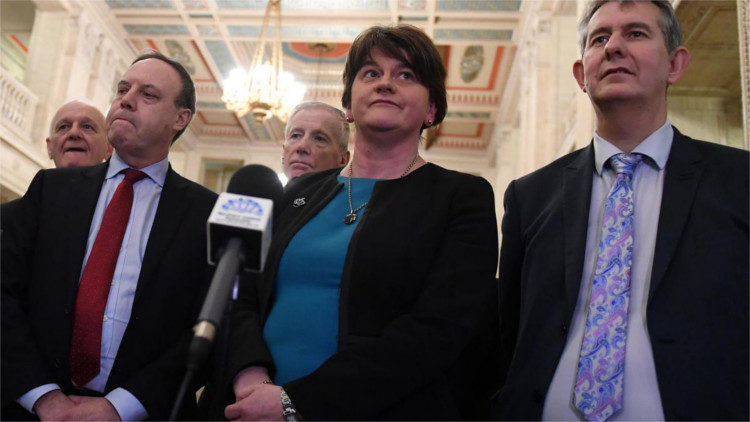Our Odd Couple Fall Out Again | The Collapse of Stormont

Take care of him/her. And make him/her feel important. And if you can do that, you’ll have a happy and wonderful marriage. Like two out of every ten couples.
Take care of him/her. And make him/her feel important. And if you can do that, you’ll have a happy and wonderful marriage. Like two out of every ten couples.
Dave Duggan is a novelist and dramatist born in London, raised in Waterford, and living in Derry. He is the author of the novels The Greening of Larry Mahon (Guildhall Press, 2004), A Sudden Sun (Guildhall Press, 2012), and Makaronik (Cló Iar Chonnacht, 2018). His film work includes the Oscar nominated Dance Lexie Dance (Raw Nerve Productions, 1996). Dave’s theatre work has played throughout Ireland and in Edinburgh, Liverpool, New York and Afghanistan. His fourth novel, Oak and Stone, is published by Merdog Books (2019).
